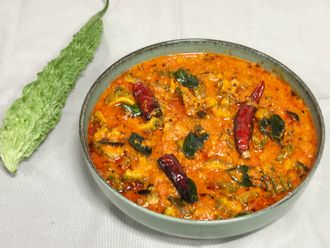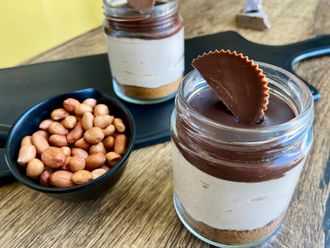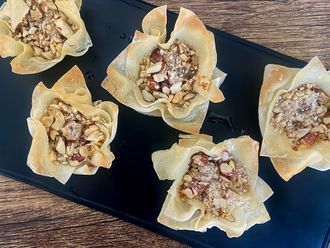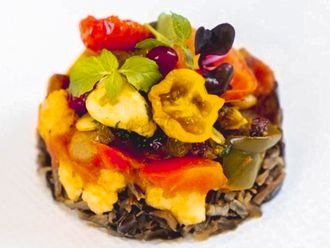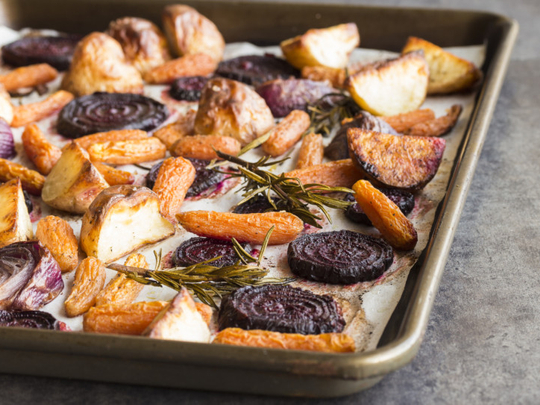
I am going to fill you in on a major secret of good nutrition: Healthier eating often has nothing to do with superfoods, metabolism or the perfect balance of nutrients, but rather with being prepared. That’s right - just like the Boy Scouts. In this case, what we need to be prepared with is food that is in line with our values and health goals.
We live fast lives, and most of us are tight on time. Often we don’t eat right not because we don’t think we need to or because we refuse to eat vegetables, but rather because we come home tired and hungry to an empty fridge. So we order something quick - and probably unhealthy — because it is easy and tasty.
How can you prepare for this? The answer is batch cooking - cooking enough food at one time so you make two or three meals’ worth of leftovers. You always have nutritious, homemade food on hand. Life gets easier, and your body gets healthier. It’s truly that simple.
When you start batch cooking, it will seem to take a lot of time, because you are prepping and cooking so much at once. However, the time you will save during the days that follow is tremendous. If you roast two to four sheets of vegetables on Sundays, you have those veggies all week. Stored in a container in your fridge, they can be eaten cold or reheated in seconds. Same with protein: Cook 10 chicken breasts, make a dozen burgers and hard-boil a dozen eggs, and you are set for protein when you walk in the door after a long day. This goes for starches as well. Make a big pot of quinoa, rice, beans, you name it, and daily portions are just waiting to be reheated.
And don’t forget to make use of your freezer, the ultimate weapon against food going bad. You can freeze cooked grains such as rice, bread and pasta, as well as cooked proteins and even vegetables.
As you learn to master freezing foods and refrigerating them in airtight containers, you might be able to make enough in one batch-cooking session to last as long as two weeks.
A major problem many people have with batch cooking is they don’t think they’re getting enough variety in their meals. Repeating the same foods during the week can be boring. The solution is using spices, herbs and condiments to add variety. Protein one night can be made with salsa, cilantro and chilies; the next night, add olives, vinegar and rosemary; for lunch, add ketchup, mustard and pickles.
Besides the batches of vegetables, proteins and grains mentioned above, here are some meal ideas to get you started:
Soups and stews: Take advantage of your slow cooker and throw veggies, protein and a starch in a pot with some broth and boil/simmer to taste. Freeze extras, take containers to work and microwave or reheat for dinner.
Frittata: Make a large pan, cut into slices and freeze or store in airtight containers.
Tuna or salmon salad: Make two cans’ worth instead of one; it will last a few days.
Smoothies: They can be as simple as yoghurt and fruit, made in bulk and frozen in individual containers.
Overnight oats: Make five separate containers, using a variety of fruits, nuts and spices, and you have breakfast for Monday through Friday.
Fruit: Cut and prep so you have on hand for the week.
Vegetables: Wash, cut and prep so you can grab on the go, throw in a salad or heat up quickly for a dinner midweek.
Pre-portioned bags of nuts and seeds.
Simple sandwiches, pre-wrapped.
Bean or grain salad.
Pre-cut and rinsed salad greens.
A large jar of salad dressing/marinade, as simple as olive oil and vinegar, or add spices, lemon, mustards, etc.
When you start batch cooking, your grocery bill may be large, as you probably are buying more than you usually do at one time. But you won’t need to shop as often — and remember, you will cut the number of times you order pricey restaurant food. The savings will add up quickly.
Finally, recognise that batch cooking is a skill and therefore takes time and practice. There will be times where you make too little or too much, or the leftovers don’t taste quite right, or you get bored, but just keep going. Over time, you will master batch cooking — and you’ll see that it’s a game-changer. Try it and notice how stress-free healthy eating can be.
— Washington Post







